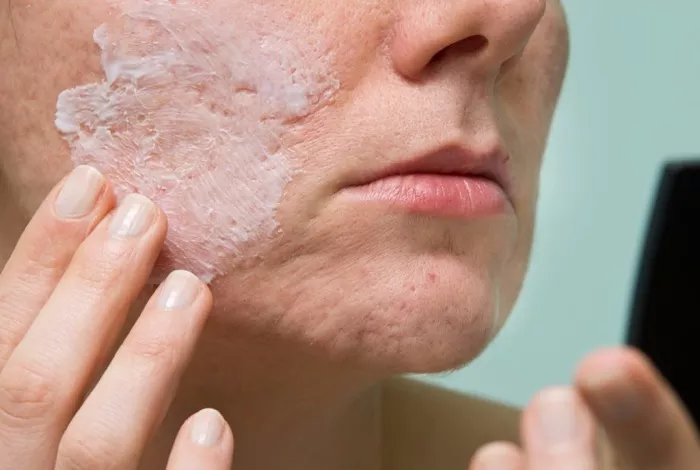Allergy sufferers know all too well the discomfort and inconvenience that allergies can bring. From sneezing fits and itchy eyes to congestion and fatigue, allergies can disrupt daily life. While there are numerous allergy medications available, one crucial concern for many individuals is drowsiness. In this comprehensive article, we will explore the world of non-drowsy allergy medicines, providing insights into their effectiveness, safety, and the factors you should consider when choosing the right one for your allergy needs.
Understanding Allergies
Before delving into non-drowsy allergy medications, it’s important to grasp the basics of allergies. An allergy is an immune system response to substances that are typically harmless, such as pollen, dust, pet dander, or certain foods. When your immune system overreacts to these allergens, it releases chemicals like histamines, which trigger symptoms like sneezing, runny nose, and itchy eyes.
Allergy symptoms can vary in severity and duration, but they often cause significant discomfort. For those with seasonal allergies, the misery can be especially acute during specific times of the year, such as spring or fall.
Common Types of Allergy Medications
To combat allergy symptoms, several types of medications are available. These medications work in different ways to alleviate allergy symptoms, but they often fall into the following categories:
Antihistamines: Antihistamines are among the most common and effective treatments for allergies. They block the action of histamines, reducing symptoms like sneezing, itching, and runny nose.
Decongestants: Decongestants help relieve nasal congestion by narrowing blood vessels in the nasal passages. They can be particularly useful for allergies that cause stuffy noses.
Corticosteroids: Corticosteroids are anti-inflammatory medications that can reduce the severity of allergy symptoms. They are often used in nasal sprays or inhalers for allergies that primarily affect the respiratory system.
Leukotriene Inhibitors: These medications target leukotrienes, substances that play a role in allergic reactions. They are typically prescribed for people with allergies that affect the lungs, such as asthma.
Mast Cell Stabilizers: Mast cell stabilizers work by preventing the release of histamines and other chemicals that trigger allergy symptoms. They are often used as eye drops for allergic conjunctivitis.
The Drowsiness Dilemma
While these allergy medications can provide much-needed relief, a common side effect of many of them is drowsiness. This drowsiness can be particularly problematic for individuals who need to remain alert and focused throughout the day, such as those with demanding jobs or students. Therefore, the quest for non-drowsy allergy medicine becomes crucial.
Non-Drowsy Allergy Medications
Fortunately, there are several options when it comes to non-drowsy allergy medications. These medications are designed to provide relief from allergy symptoms without causing excessive sleepiness or drowsiness. Here are some of the most commonly used non-drowsy allergy medications:
Second-Generation Antihistamines: Second-generation antihistamines are the go-to choice for many people seeking non-drowsy relief from allergies. Examples include cetirizine (Zyrtec), loratadine (Claritin), and fexofenadine (Allegra). Unlike their first-generation counterparts, these antihistamines are less likely to cross the blood-brain barrier, resulting in fewer sedative effects.
Nasal Corticosteroid Sprays: Nasal corticosteroid sprays like fluticasone (Flonase) and mometasone (Nasonex) are effective at reducing nasal congestion and inflammation without causing drowsiness. They are often prescribed for seasonal and perennial allergies.
Leukotriene Inhibitors: Medications like montelukast (Singulair) are non-drowsy options for individuals with asthma-related allergies. They work by blocking leukotrienes, which contribute to allergic reactions in the airways.
Mast Cell Stabilizers: Cromolyn sodium (NasalCrom) is an example of a non-drowsy mast cell stabilizer that can be used as a nasal spray to relieve allergic symptoms without causing drowsiness.
Combination Medications: Some combination medications, such as loratadine/pseudoephedrine (Claritin-D) or cetirizine/pseudoephedrine (Zyrtec-D), include an antihistamine along with a decongestant. While the decongestant component can cause mild stimulation, the antihistamine usually counters any potential drowsiness.
Effectiveness of Non-Drowsy Allergy Medications
The effectiveness of non-drowsy allergy medications varies from person to person and depends on the specific allergies and symptoms you are experiencing. While these medications can provide relief from many allergy symptoms, they may not be equally effective for everyone.
Allergy symptoms can manifest in different ways, such as sneezing, itching, nasal congestion, or eye irritation. Therefore, it’s essential to choose a medication that targets your specific symptoms. For instance, if your primary symptom is a runny nose, a nasal corticosteroid spray may be more effective than an antihistamine.
Additionally, the severity of your allergy symptoms and the duration of exposure to allergens can influence the effectiveness of non-drowsy allergy medications. For seasonal allergies, you may only need relief for a few weeks or months, whereas perennial allergies require year-round management.
Safety Considerations
When selecting a non-drowsy allergy medication, it’s crucial to consider safety factors. Here are some important safety considerations:
Interactions: Check for potential drug interactions with any other medications you may be taking. Some allergy medications can interact with other drugs, affecting their effectiveness or causing adverse effects.
Side Effects: While non-drowsy allergy medications are less likely to cause drowsiness, they may still have other side effects, such as dry mouth, headache, or gastrointestinal issues. Be aware of potential side effects and consult your healthcare provider if they become problematic.
Pregnancy and Breastfeeding: If you are pregnant or breastfeeding, it’s essential to consult your healthcare provider before taking any medication, even over-the-counter non-drowsy allergy medications. They can help you make an informed decision about the safety of these medications during pregnancy or while breastfeeding.
Age Considerations: Some non-drowsy allergy medications may not be suitable for children under a certain age. Always follow age-specific dosing recommendations and consult a pediatrician if you have concerns about giving these medications to your child.
Choosing the Right Non-Drowsy Allergy Medication
Selecting the right non-drowsy allergy medication involves considering several factors:
Symptoms: Identify your primary allergy symptoms, such as sneezing, itching, nasal congestion, or eye irritation. Choose a medication that specifically targets those symptoms.
Duration: Consider how long you will need allergy relief. For seasonal allergies, a short-term solution may suffice, while perennial allergies require long-term management.
Safety: Ensure that the medication you choose is safe for you, taking into account any underlying medical conditions, interactions with other medications, and pregnancy or breastfeeding status.
Cost: Some non-drowsy allergy medications are available over-the-counter, while others may require a prescription. Factor in the cost and availability of the medication when making your choice.
Consultation: When in doubt, consult a healthcare provider or allergist. They can provide personalized recommendations based on your specific allergy profile and medical history.
Conclusion
Allergies can significantly impact your quality of life, but finding relief doesn’t have to come at the cost of drowsiness. Non-drowsy allergy medications offer a viable solution for managing allergy symptoms without the unwanted side effect of sleepiness. With a range of options available, from second-generation antihistamines to nasal corticosteroid sprays, there is likely a non-drowsy medication that can effectively address your allergy concerns.
Remember that the right choice of non-drowsy allergy medication depends on your individual needs, symptoms, and safety considerations. By understanding your allergies and consulting with a healthcare provider if necessary, you can enjoy the benefits of effective allergy relief without the burden of drowsiness, allowing you to lead a more comfortable and productive life, free from the disruptions caused by allergy symptoms.
[inline_related_posts title=”You Might Be Interested In” title_align=”left” style=”list” number=”6″ align=”none” ids=”2515,2443,2588″ by=”categories” orderby=”rand” order=”DESC” hide_thumb=”no” thumb_right=”no” views=”no” date=”yes” grid_columns=”2″ post_type=”” tax=””]


































